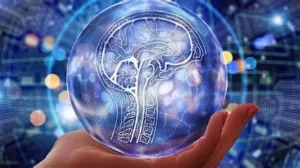Exploring the Benefits of AI-Powered Disaster Recovery Solutions
The world is becoming increasingly reliant on technology, and with this comes the need for reliable disaster recovery solutions. Artificial intelligence (AI) is emerging as a powerful tool for disaster recovery, offering a range of benefits that can help organizations protect their data and systems in the event of a disaster.
AI-powered disaster recovery solutions are designed to detect and respond to potential threats quickly and accurately. By leveraging AI-driven analytics, these solutions can identify patterns and anomalies in data that may indicate a potential disaster. This allows organizations to take proactive steps to mitigate the impact of a disaster before it occurs.
AI-powered disaster recovery solutions also provide organizations with the ability to automate their disaster recovery processes. This can help reduce the time and effort required to restore systems and data after a disaster. AI-driven automation can also help organizations reduce the risk of human error, which can be a major factor in the success or failure of a disaster recovery plan.
In addition to providing organizations with the ability to detect and respond to potential disasters quickly, AI-powered disaster recovery solutions can also help organizations reduce their costs. By automating the disaster recovery process, organizations can reduce the amount of time and resources required to restore systems and data. This can help organizations save money on labor costs and other expenses associated with disaster recovery.

Finally, AI-powered disaster recovery solutions can help organizations improve their overall security posture. By leveraging AI-driven analytics, organizations can identify potential threats and vulnerabilities in their systems and data. This can help organizations take proactive steps to protect their data and systems from potential disasters.
Overall, AI-powered disaster recovery solutions offer a range of benefits that can help organizations protect their data and systems in the event of a disaster. By leveraging AI-driven analytics, organizations can detect and respond to potential disasters quickly and accurately. AI-driven automation can also help organizations reduce the time and effort required to restore systems and data after a disaster. Finally, AI-powered disaster recovery solutions can help organizations reduce their costs and improve their overall security posture.
How AI Can Help Us Better Prepare for Natural Disasters
Natural disasters can have devastating effects on communities, causing destruction of property, loss of life, and disruption of essential services. In recent years, the frequency and intensity of natural disasters have increased, making it more important than ever to be prepared. Artificial intelligence (AI) can play an important role in helping us better prepare for natural disasters.
AI can be used to analyze data from past disasters to identify patterns and trends that can help us better predict future disasters. By analyzing data from past disasters, AI can help us identify areas that are more prone to certain types of disasters, such as floods or hurricanes. This information can be used to create better evacuation plans and to identify areas that need to be better protected.
AI can also be used to monitor weather conditions in real-time. By using sensors and cameras, AI can detect changes in weather patterns and alert authorities to potential disasters. This can give authorities more time to prepare and evacuate people in danger.
AI can also be used to help with disaster relief efforts. AI can be used to analyze data from past disasters to identify areas that need the most help. This information can be used to prioritize relief efforts and ensure that resources are allocated to the areas that need them the most.
Finally, AI can be used to help with post-disaster recovery. AI can be used to analyze data from past disasters to identify areas that need the most help in rebuilding. This information can be used to prioritize rebuilding efforts and ensure that resources are allocated to the areas that need them the most.

In conclusion, AI can play an important role in helping us better prepare for natural disasters. By analyzing data from past disasters, monitoring weather conditions in real-time, helping with disaster relief efforts, and aiding in post-disaster recovery, AI can help us better protect our communities and ensure that resources are allocated to the areas that need them the most.
The Role of AI in Automating Disaster Recovery Processes
Artificial Intelligence (AI) has become an increasingly important tool in automating disaster recovery processes. AI can be used to quickly identify and respond to disasters, as well as to automate the recovery process. This can help organizations reduce the time and cost associated with disaster recovery, while also improving the accuracy and reliability of the recovery process.
AI can be used to detect and respond to disasters in a variety of ways. For example, AI can be used to monitor data sources such as weather forecasts, seismic activity, and other environmental conditions. This data can be used to detect potential disasters and alert the appropriate personnel. AI can also be used to analyze the data and provide recommendations for how to respond to the disaster.
AI can also be used to automate the disaster recovery process. AI can be used to identify the most efficient and effective way to recover from a disaster. This can include identifying the most efficient way to restore data, as well as the most effective way to restore services. AI can also be used to automate the process of restoring data and services, which can help reduce the time and cost associated with disaster recovery.
Finally, AI can be used to improve the accuracy and reliability of the disaster recovery process. AI can be used to analyze data and identify potential problems or issues that could arise during the recovery process. This can help organizations identify and address potential issues before they become major problems.
Overall, AI can be a powerful tool for automating disaster recovery processes. AI can be used to quickly detect and respond to disasters, as well as to automate the recovery process. This can help organizations reduce the time and cost associated with disaster recovery, while also improving the accuracy and reliability of the recovery process.
How AI Can Help Us Respond Faster to Natural Disasters
Natural disasters can cause immense destruction and disruption to communities, and responding quickly and effectively is essential to minimizing the damage. Artificial intelligence (AI) can play an important role in helping us respond faster to natural disasters.
AI can be used to detect and predict natural disasters. AI-powered systems can analyze data from various sources, such as satellite imagery, weather forecasts, and seismic activity, to detect and predict the occurrence of natural disasters. This can give us an early warning, allowing us to prepare and respond more quickly.
AI can also be used to monitor the progress of natural disasters. AI-powered systems can analyze data from various sources, such as social media posts, news reports, and sensor readings, to monitor the progress of natural disasters in real-time. This can help us better understand the situation and make more informed decisions about how to respond.
AI can also be used to optimize the response to natural disasters. AI-powered systems can analyze data from various sources, such as population density maps, traffic patterns, and evacuation routes, to optimize the response to natural disasters. This can help us ensure that resources are allocated efficiently and that people are evacuated safely and quickly.
In conclusion, AI can be a powerful tool for helping us respond faster to natural disasters. By using AI to detect and predict natural disasters, monitor their progress, and optimize the response, we can ensure that we are better prepared and able to respond quickly and effectively.
The Potential of AI in Enhancing Disaster Recovery Strategies
In recent years, the world has seen an increase in the frequency and intensity of natural disasters. As a result, disaster recovery strategies have become increasingly important for governments and organizations to ensure the safety of their citizens and employees. Artificial intelligence (AI) has the potential to revolutionize disaster recovery strategies by providing more efficient and effective solutions.
AI can be used to analyze data from past disasters and identify patterns that can be used to predict future disasters. This data can be used to create models that can accurately predict the severity and location of future disasters. This information can then be used to create more effective disaster recovery plans that are tailored to the specific needs of the affected area.
AI can also be used to monitor the environment for signs of impending disasters. By using sensors and cameras, AI can detect changes in the environment that may indicate an impending disaster. This information can then be used to alert authorities and provide them with the necessary information to take the appropriate action.
AI can also be used to automate the response to disasters. By using robots and drones, AI can be used to quickly assess the damage and provide relief to affected areas. This can help to reduce the amount of time it takes to respond to a disaster and ensure that resources are allocated to the areas that need them most.
Finally, AI can be used to improve communication during disasters. By using chatbots and natural language processing, AI can be used to provide accurate and timely information to those affected by a disaster. This can help to reduce confusion and ensure that people are able to access the help they need.
Overall, AI has the potential to revolutionize disaster recovery strategies by providing more efficient and effective solutions. By using AI to analyze data, monitor the environment, automate the response, and improve communication, governments and organizations can ensure that they are better prepared for future disasters.







